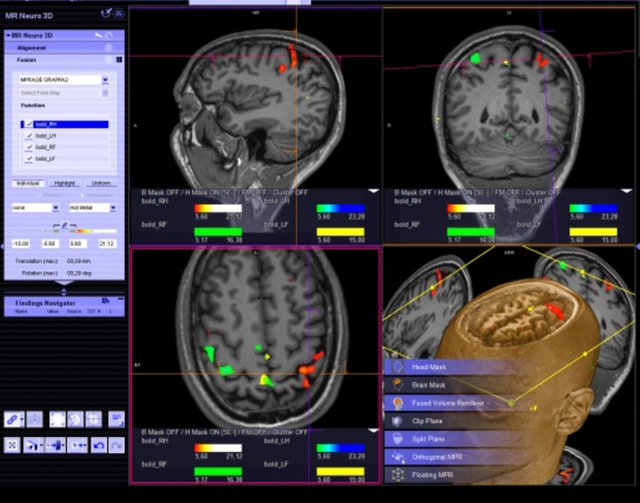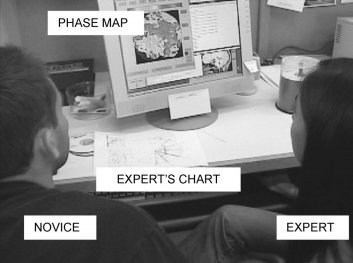Cognitive Ethnography: ACTION AS COGNITION
In 2004, cognitive anthropologists Morana Alač and Edwin Hutchins carried out nine months of ethnographic fieldwork among several groups of Neuroscientists, studying the transmission of knowledge from experts to novices in the practice of functional Magnetic Resonance Imaging (fMRI).

Above: Measuring brain activity with Functional Magnetic Resonance Imaging (syngo.MR Neuro fMRI)
The researchers combined traditional ethnographic methods with “micro-analysis of specific occurrences of events and practices” during the learning process, which were captured on film during fieldwork.

Above: Learning environment in Alač & Hutchins (2004)
Using hermeneutic analyses on the data, the researchers explored tacit knowledge as a shared resource between expert and novice neuroscientists during fMRI training. They suggest shared psychological and cultural assumptions are referenced, and thus activated, during these training interactions via “gesture, language, and material structure present in the socially and culturally constituted environment” of neuroscientists.
Alač and Hutchins suggest these activations of tacit knowledge simplify the transmission of complex knowledge--fMRI skills here--from the expert to the novice. In principle, they suggest “mundane processes of situated [social] human interaction” (gesture, language, etc.) activate tacit knowledge in the psychological and cultural schemas of the Neuroscientist, which inform the learning process; integrating shared assumptions and other aspects of cultural knowledge into whatever mental content is being learned (fMRI skills).
Alač and Hutchins call this notion of tacit knowledge utilization through mundane social activity action as cognition.
#psychology #anthropology #cognition #culture #fmri
Edits: Spelling, grammar
I am surprise to see this.
This seems related to how @mada uses the term "collective unconscious" in his #trancewar posts. They might interest you.